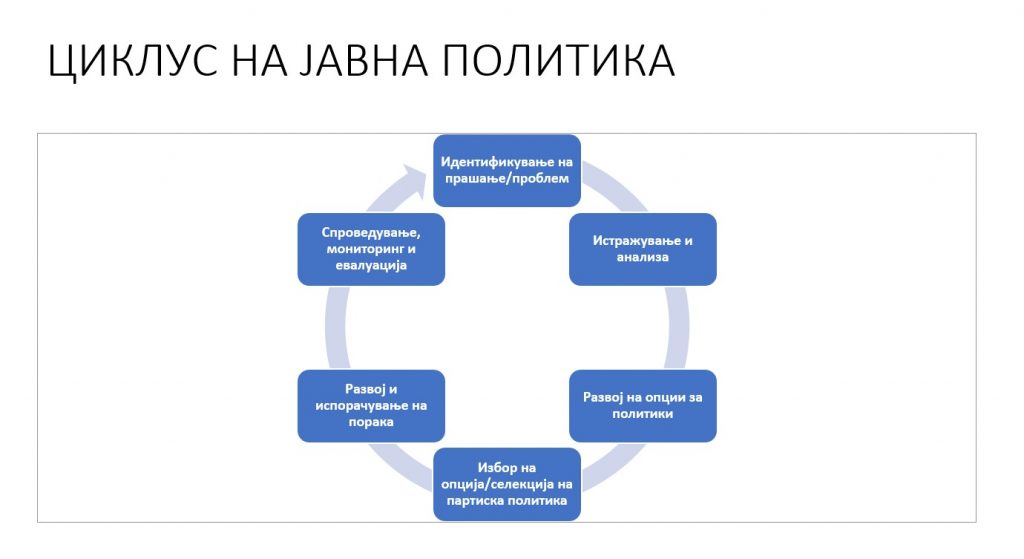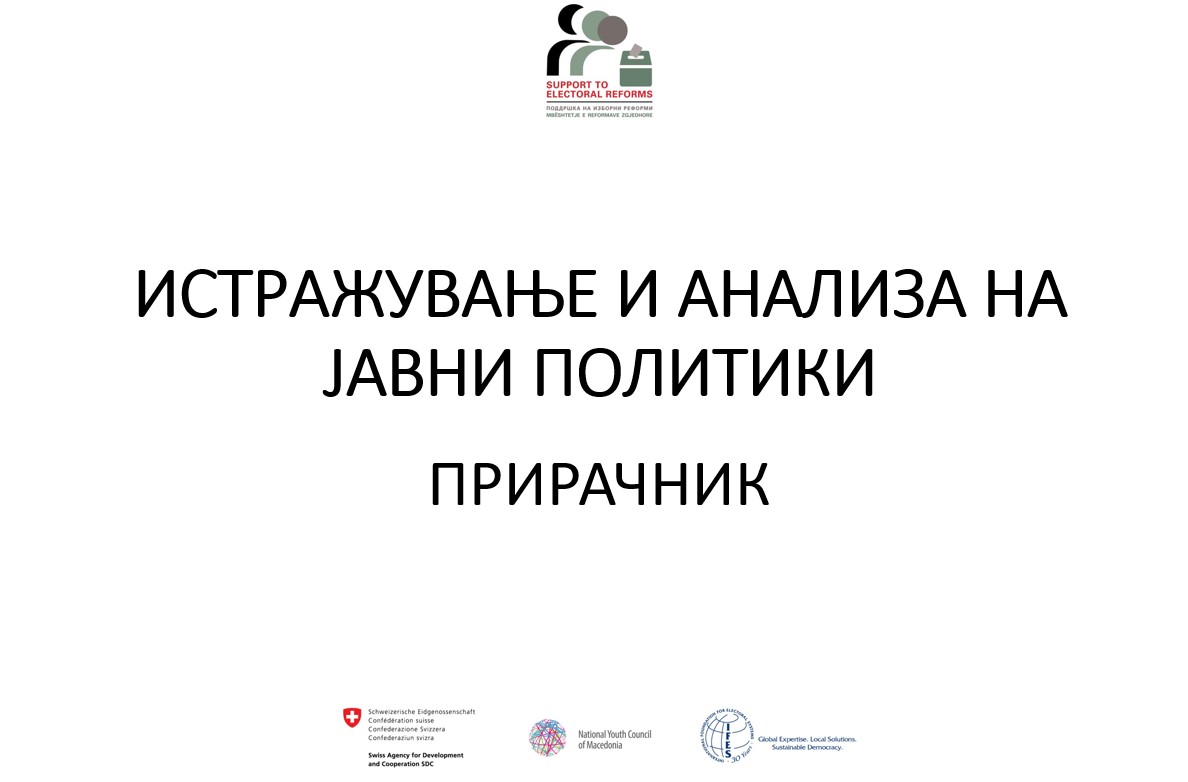As part of the project “Support to Electoral Reforms”, a workshop was held with representatives of the four Research and Analytical Centers (RAC) of the largest political parties in the country, where a draft manual for research and analysis of public policies was presented.
In the second part of the event, the attendees had the chance to share their experiences with the international public policy consultant Lolita Cigane from Latvia, who was on an official visit to Skopje. At this meeting, Cigane spoke on topics related to improving RAC research, in order to overcome weaknesses and how to create more successful policies in the future for the benefit of their voters.
The draft Public Policy Research and Analysis Handbook, which presented a productive discussion on its applicability and how to adapt to the needs and capacities of the RAC, is a useful tool for strengthening the research capacities of the centers and parties.
This handbook, although a theoretical document, also provides practical guidance on how to conduct specific research. Its aim is to strengthen the RAC’s research capacity so that they can adequately support parties in policy-making processes at the national and local levels. Further demonstrate applicable tools and tips that the RAC can use in planning, designing and conducting analysis and research, and for the proactive participation of the RAC in a reasoned and sustainable discussion to address existing issues.

The handbook contains an introduction to public policy, which covers the cycle of public policy from problem identification, research and analysis, development of policy options, through the selection of a party policy option, development and delivery of a message, to monitoring and evaluation.
Research design, which is a logical map that should guide the researcher from “here” which is actually the initial step and asks the initial questions to be solved with the research, to “there” which is the final step and presents the conclusions of the research, more precisely the answers to research questions. Research plan and elements, research methods such as survey, focus group, interview, analysis of existing documentation, case studies and observation, data analysis and presentation of results.
The second part of the workshop discussed the development of policies in political parties, reviewing the activities in 2021 and presenting the plans for 2022 and what are the optimal ways to create policies based on evidence and research.
Cigane stressed that the biggest challenge for research centers is to show political parties that their work is necessary. In that regard, it was discussed that a more active correlation is needed between the PR teams of the political parties and the research centers themselves, in order to improve the communication. It was also discussed how much and how political parties analyze IAC research before, during and after political campaigns.
The focus was mostly on the micro and macro targeting of research centers and political parties during their political campaigns. The conclusions of the representatives of the centers were that a positive policy with micro-targeting is an extremely important method that should be applied in conditions of a political campaign.
This meeting resulted in useful conclusions, and the attendees stated that only with more frequent trainings, workshops, seminars and trainings, their strength could be strengthened.

